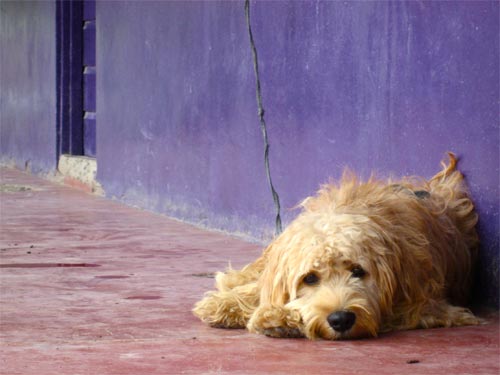
1. A clothes dryer
In the world in which I grew up, the existence of clothes dryers was simply a given. Even if you didn’t have one at home, there’d always be one in the basement of your apartment complex or dorm, or in a nearby laundromat.
Not in Salvador. First of all, clothes dryers are prohibitively expensive.
Let’s say you work minimum wage in the U.S., earning about $1000/month, and you manage to put away 5% ($50/month) in savings. Clothes dryers start at about $400, so it’d take you eight months to save up for a dryer.
Take the same situation in Brazil – you earn minimum wage (R$625/month) and you save 5% (R$31/month). Clothes dryers start at about R$1200, so it’d take you 3 years and 2 months to save up for a dryer.
…but who needs clothes dryers in a sunny, tropical climate? True, about 80% of the year, drying laundry on the clothesline is a breeze – and environmentally-friendly, too. But in the months of May and June, the environment turns decidedly UNfriendly. It has rained pretty much constantly for the past 7 DAYS, meaning no clothes can be dried and no new clothes can be washed. And if you don’t own a ton of backup clothes, you’re pretty much S.O.L.
If you’re in Brazil on vacation, this is irritating but bearable. But if you have commitments like going to work, which requires certain clothes (in my husband’s case, a uniform) it becomes full-on stressful. Neither of us have gone to capoeira for the past week because of lack of clean clothes, and the other day we hit a true laundry emergency, and had to cave and send Christian’s work clothes to the overpriced, full-service-only, takes-a-full-day-to-get-your-clothes-back laundromat.
I will never take a dryer for granted again.

Image: FreeDigitalPhotos.net
2. Running water
If I were living in a remote village where the only way to get water was to lug buckets of it from the river, that’d be one thing – the inconvenience would simply be a given. But when you live in the 3rd-largest city of a rapidly-developing country with wireless internet, air conditioning, and one of the world’s most sophisticated electronic voting systems, you kind of imagine they’d have basic infrastructural necessities like water down by now.
But NO. The water randomly cuts out, sometimes for hours or days at a time. When we first moved in, the shower spent about 2 weeks producing a stream of water thinner than my pinky – that’s all we had for taking showers and doing laundry. And the problem is that there IS no local river where I could go to get backup water.
Oh, and taps for hot and cold water? I’ve never seen those in Brazil.

3. Freedom of transport
Having a car is practically another “given” in the U.S. (92-95% of households own at least one, and a good number of those who don’t live in NYC, where it’s not needed anyway).
In Salvador, only about half the population owns a vehicle, and for the past 4 days the entire city was paralyzed by a bus strike. By law, during a strike they’re supposed to keep 40-60% of the fleet on the road – but this law was not respected, and there were simply no buses anywhere. All of my classes were canceled, but I’m extremely fortunate that I have work I can do from home. My husband spent 3 hours trying to hail a taxi in the rain to get home from work (they were all full). His coworker has been biking an hour and a half each way to work.
Even when the public transportation is working, let’s compare a simple everyday errand:
Going to the bank to cash a check
With car:
- 15 minutes drive there
- 10 minutes wait in line at bank
- 15 minutes drive back
Total = 40 minutes
By bus:
- 10 minutes walk to the stop
- 10 minutes wait for bus
- 20 minutes ride there
- 10 minutes walk from bus stop to bank
- 10 minutes wait in line at bank
- 10 minutes walk from bank to bus stop
- 10 minutes wait for bus
- 20 minutes ride back
- 10 minutes walk from bus stop to home
Total = 110 minutes
If and when we get a vehicle, I am going to be thankful for it every single day.
—————————————————————


